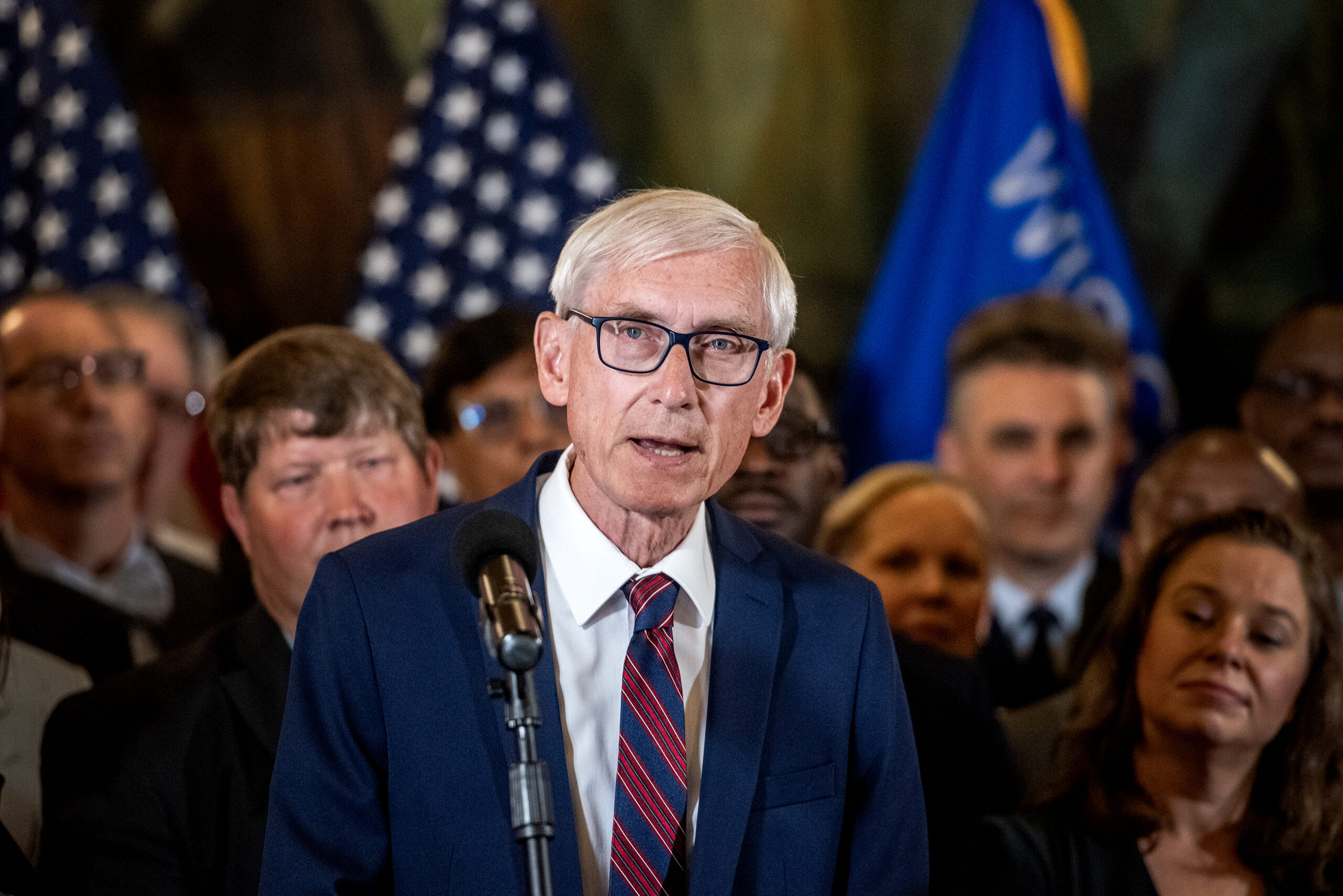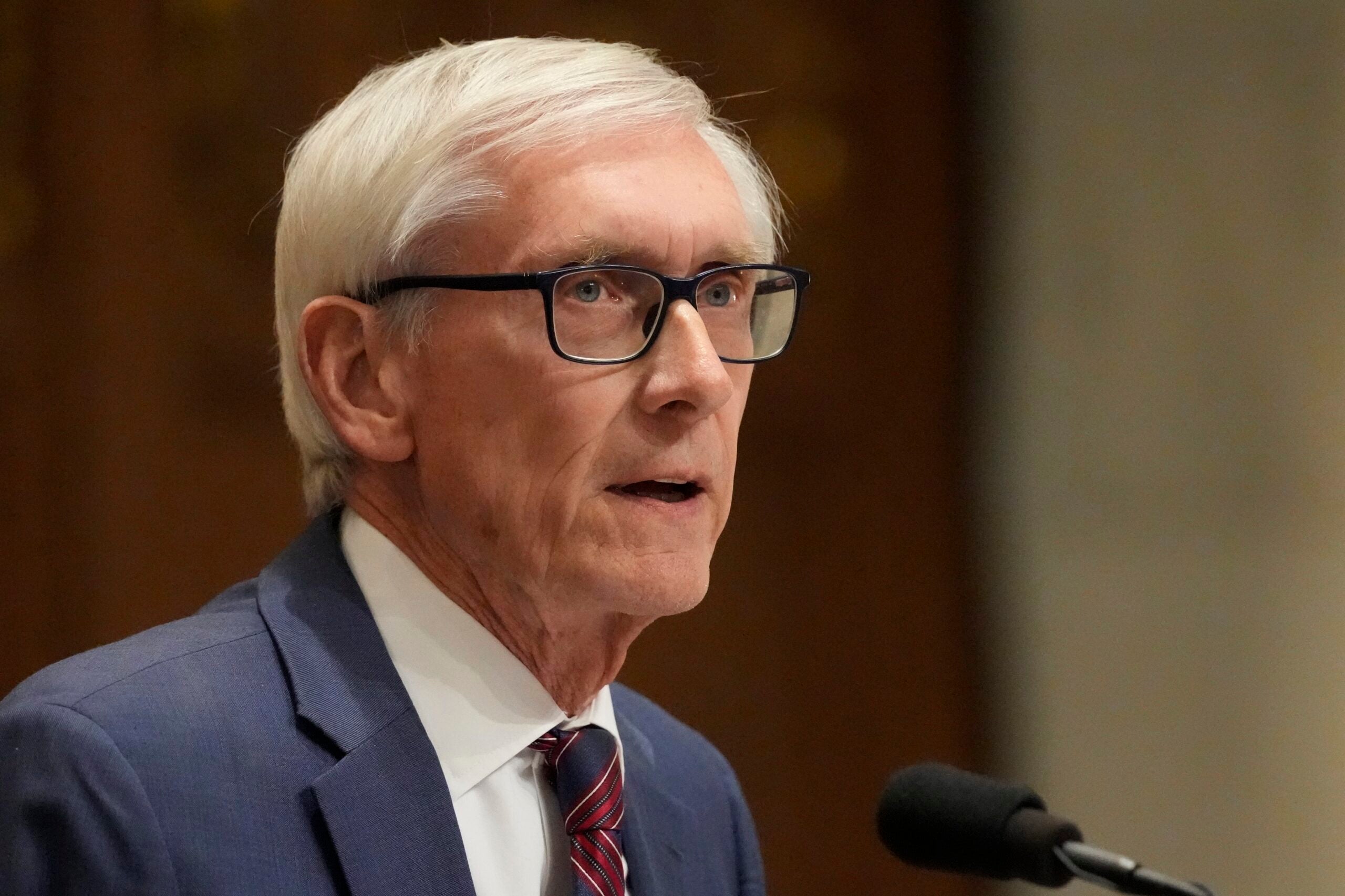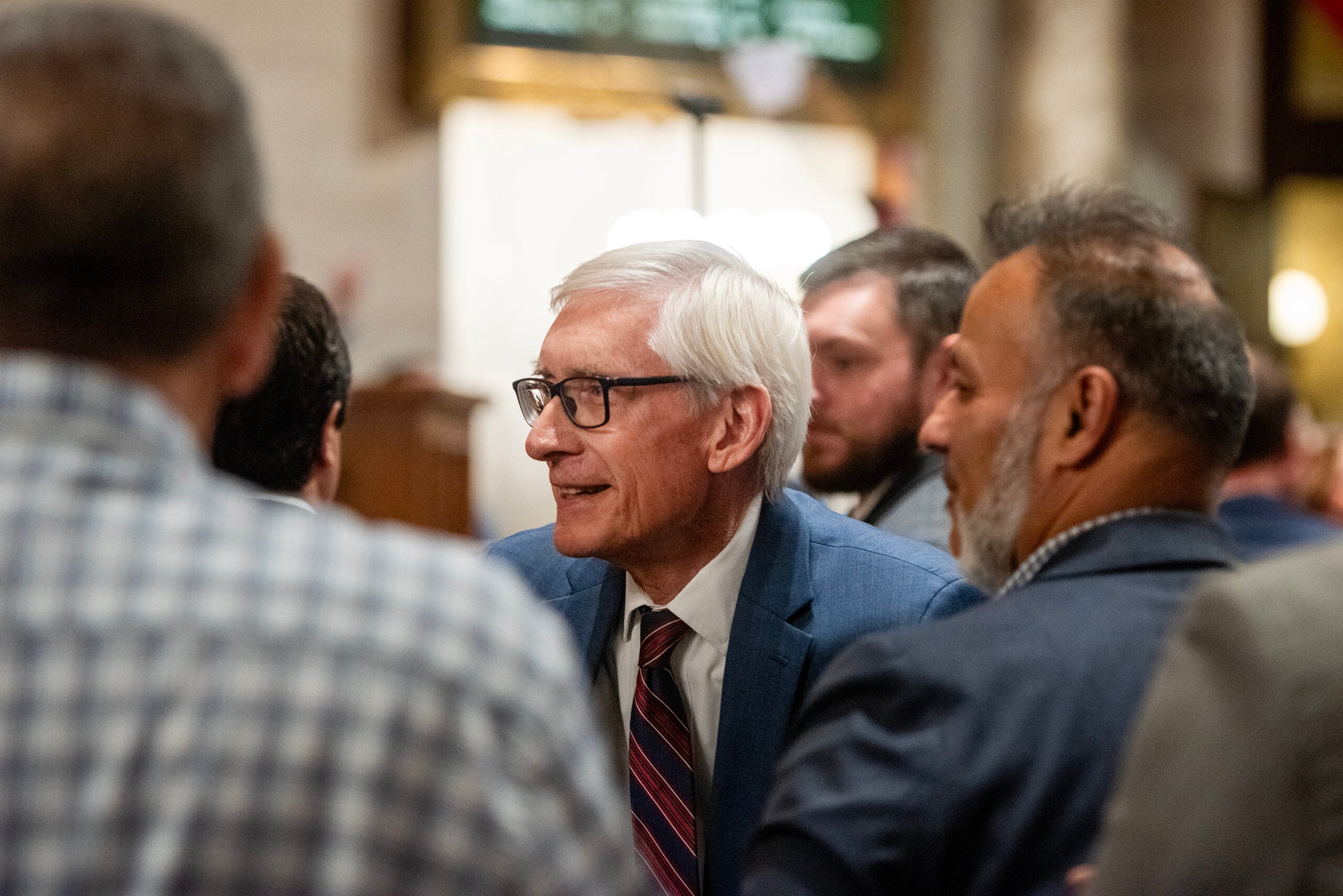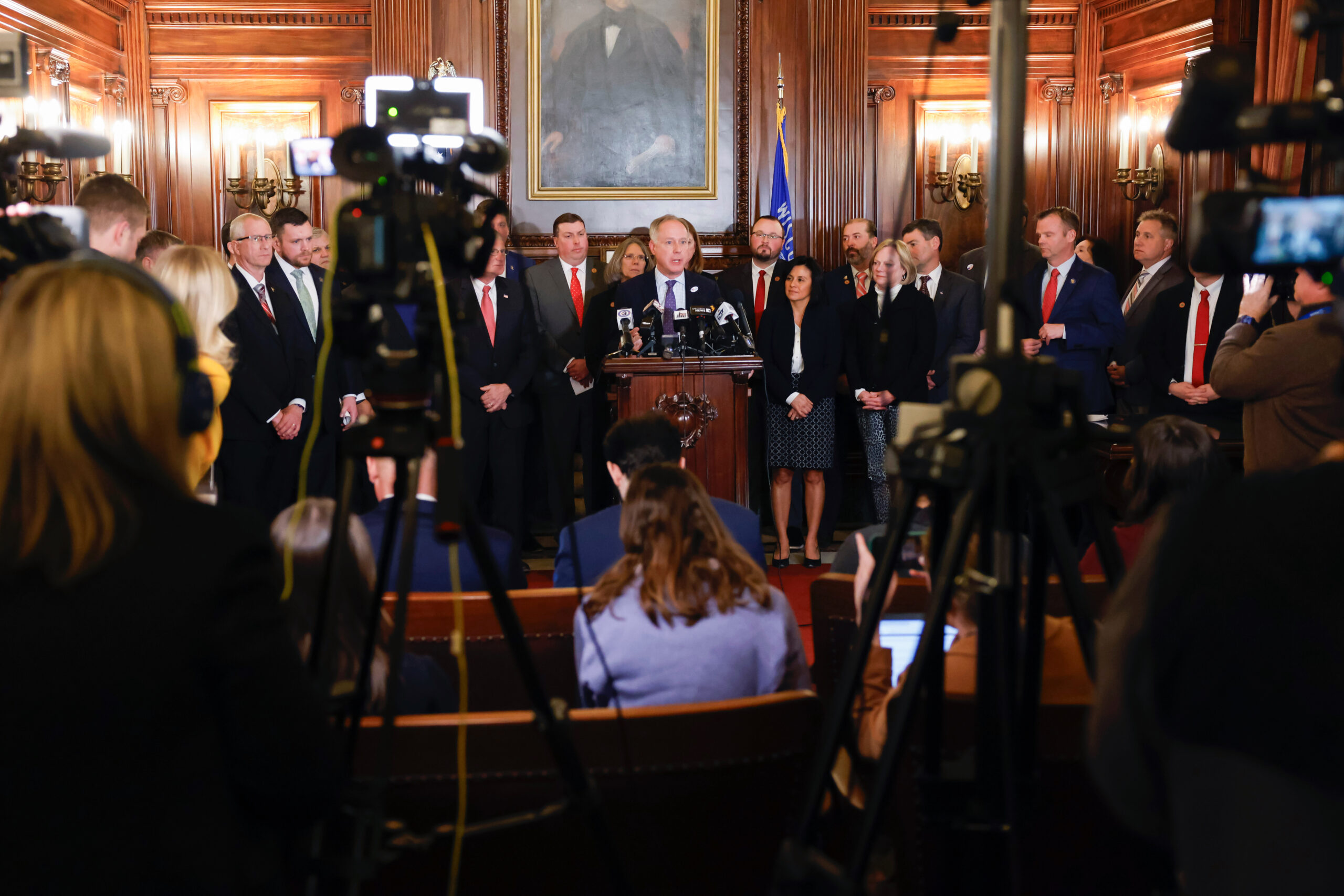Even with divided government in 2023, Democratic Gov. Tony Evers and Republicans who run the Wisconsin Legislature managed to reach compromises on big issues, from an overhaul of local government funding to a deal on the Milwaukee Brewers stadium.
Whether there’s still room for compromise in 2024, as the state veers toward another contentious presidential election, is a different question altogether.
“Maybe there is,” said Evers in an interview this week from his Capitol office. “The elections that are going to happen next fall, and what the maps are going to look like, really will kind of drive that conversation.”
News with a little more humanity
WPR’s “Wisconsin Today” newsletter keeps you connected to the state you love without feeling overwhelmed. No paywall. No agenda. No corporate filter.
The maps — Wisconsin’s legislative districts — could change substantially under a case currently before the state Supreme Court, where liberals hold a 4-3 majority. Republicans currently hold a 64-35 majority in the Assembly and a 22-11 majority in the Senate, but the court found the current legislative maps unconstitutional and ordered new ones drawn in their place.
If the court chooses new maps that are more competitive, Evers said it could influence the behavior of legislators.
“If people see that the maps are going to be more fair, they may be more interested in compromise,” Evers said.
Evers laid out a few issues that he thinks are ripe for compromise, along with some disputes — including his separation of powers lawsuit against the Legislature — where he and Republicans remain at odds.
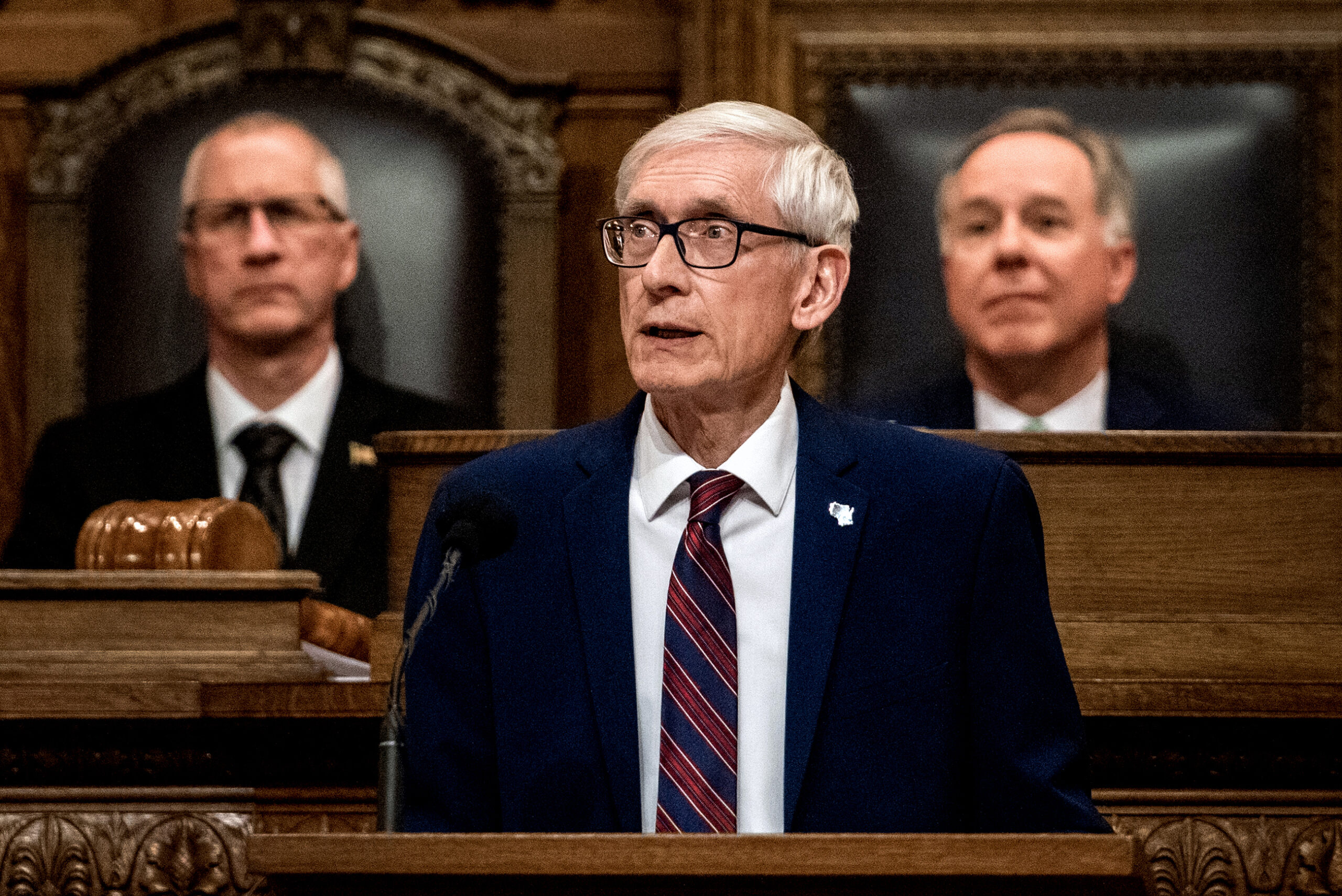
Evers says this could be the year he signs a medical marijuana law
Evers has supported decriminalizing marijuana every year since he was elected governor, most recently supporting full legalization of recreational marijuana as part of his budget. Republicans have made clear that position is a nonstarter with them.
But Assembly Speaker Robin Vos, R-Rochester, has said Republicans will unveil a proposal in January that would legalize marijuana for medicinal purposes.
“Recreational marijuana is timely in this state. We should be going ahead in that direction,” Evers said. “Can I get behind medicinal marijuana? Yes.”
Evers said he’d be prepared to sign a medicinal marijuana bill into law as long as it doesn’t include what he calls “poison pills” — provisions that make the rest of the bill unacceptable. Republicans have talked about putting restrictions on medical marijuana. Evers said he wants to make sure it’s not too restrictive.
“I don’t want to make it so difficult that we say we have it, but hardly anybody can use it,” Evers said.
Evers said other areas of potential compromise include a tax cut for retirees and some type of assistance to support child care. So far this session, the governor and Republicans have not seen eye-to-eye on those issues.
Evers proposed a tax cut package as part of his budget, but Republicans got rid of it. In its place, they proposed their own tax cut for all income brackets, which Evers vetoed. More recently, they passed another bill that would have cut taxes for the state’s largest income bracket, but attached it to other provisions, like a larger tax deduction for private school tuition. The governor vetoed that proposal, too.
On child care, Republicans rejected Evers’ plan to continue a federal child care subsidy and have instead proposed their own package of child care bills.
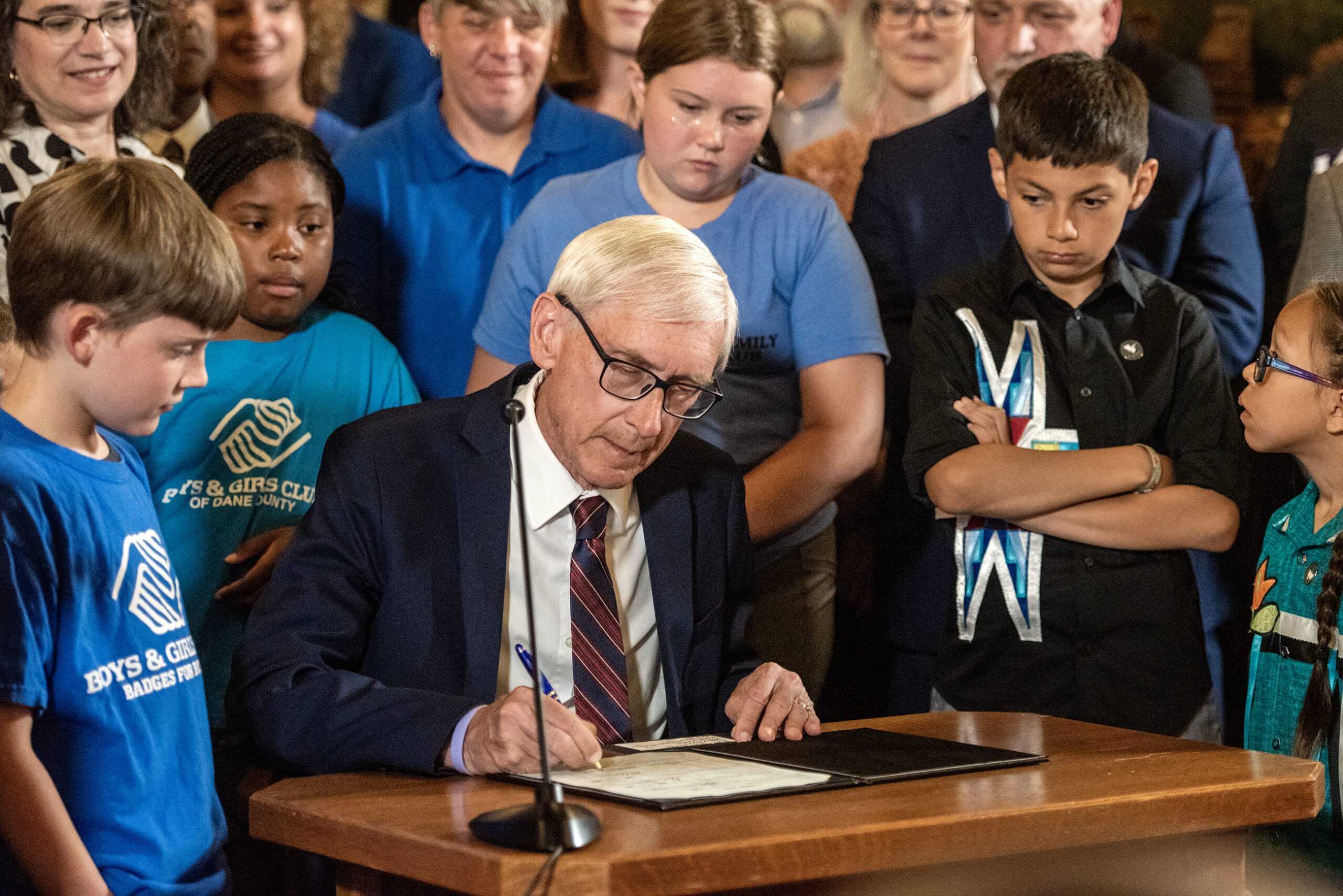
The governor’s lawsuit against the Legislature will continue
At the same time, Evers was adamant that a lawsuit he filed against the Legislature involving the separation of powers between the two branches must continue in 2024.
Evers initially filed the lawsuit at a time when a Republican-led committee was holding up raises for Universities of Wisconsin employees that were approved as part of the two-year budget he signed. That panel agreed to the raises in December after Vos cut a deal with the UW Board of Regents, but Evers said it didn’t lessen the need for his lawsuit.
“In fact, it’s a perfect example of what that lawsuit is all about,” Evers said.
The deal between Vos and the UW released money for raises in exchange for limits to diversity, equity and inclusion, or DEI, practices on campuses and a new, guaranteed enrollment policy for the state’s top performing high school students.
“I’ve done bargaining myself when I was a teacher, and you don’t bargain something that’s already been decided,” Evers said. “Wages was already decided. And DEI was part of the budget. I vetoed that. They didn’t override that veto. So those things should not have been negotiated.”
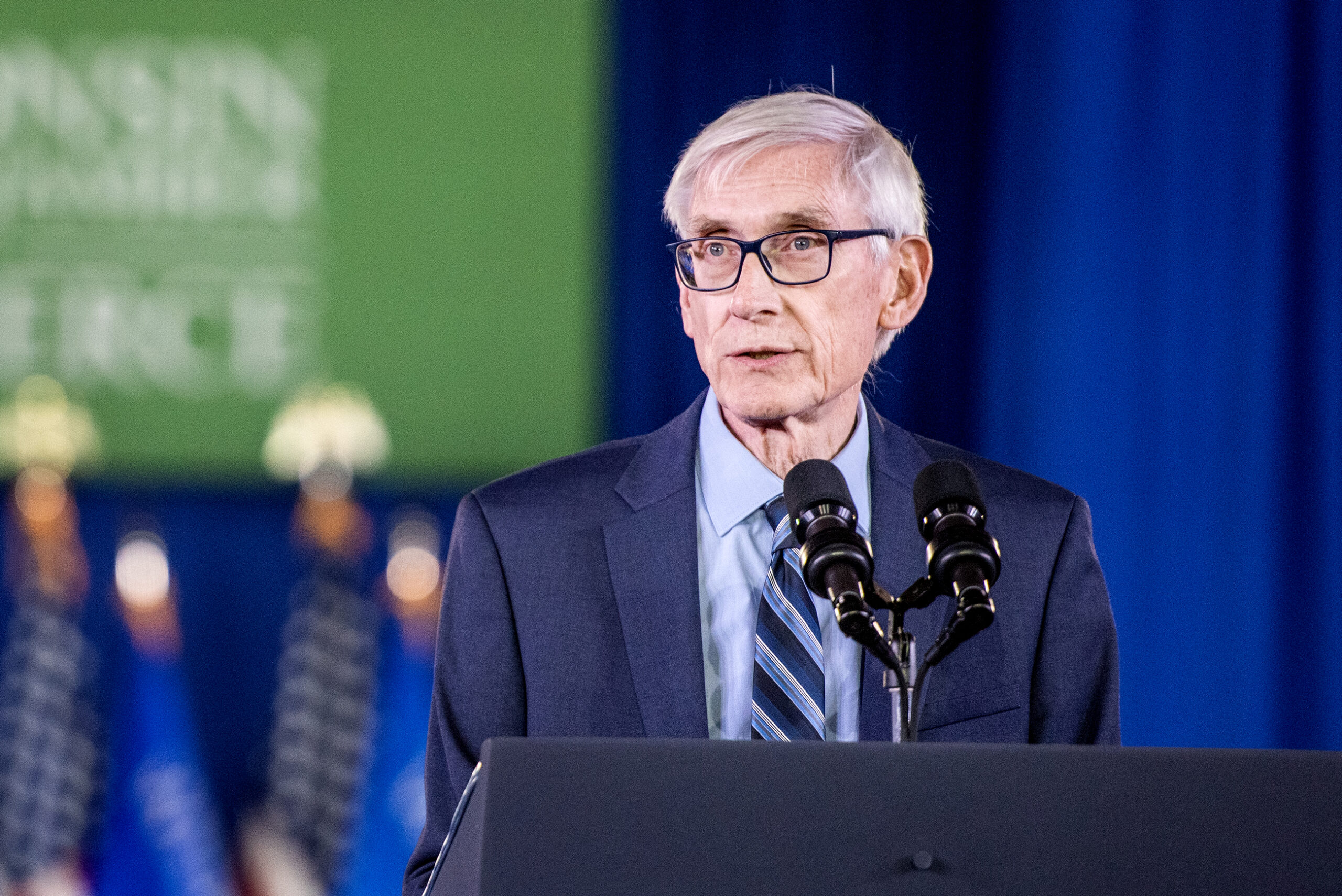
Evers says Donald Trump’s direction, Joe Biden’s policies, will decide 2024
While Evers won’t be on the ballot in 2024, he’s one of the faces of a state Democratic Party tasked with winning Wisconsin’s 10 electoral votes in 2024.
The governor, who has won two statewide general elections for governor and three races for state superintendent before that, said Trump himself will be a major factor in who wins the presidential race.
“Donald Trump is taking our country into some very strange places,” Evers said. “I think that’s going to be part of the calculus on who’s going to win that race.”
Biden, Evers said, would succeed by focusing on “kitchen table” issues.
“Making sure that our roads are in a good place, making sure that we’re putting in new pipes and so that kids are drinking the water that they should be drinking instead of other pollutants,” Evers said.
As for his own plans, Evers said he’s proud of his record but not ready to say whether he’ll run for a third term in 2026.
“I believe we have made some significant inroads in the state,” Evers said. “That said, I won’t be making that decision for some time.”
Editor’s note: Wisconsin Public Radio staff are employees of UW-Madison.
Wisconsin Public Radio, © Copyright 2025, Board of Regents of the University of Wisconsin System and Wisconsin Educational Communications Board.

